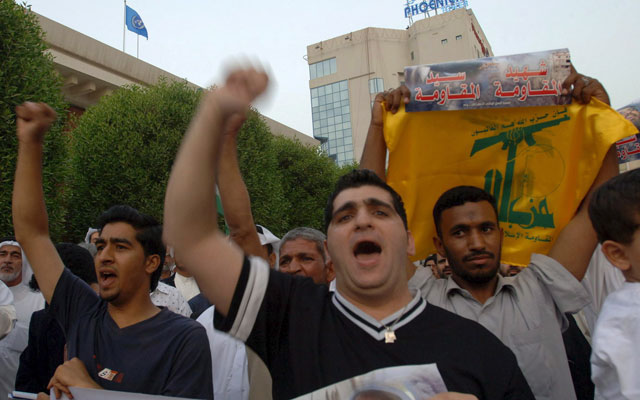Europe Must Confront Hezbollah’s Growing Threat
Sarah Field /
Hezbollah, a Lebanon-based Shia terrorist organization, engages in numerous illicit activities around the world, particularly in the Middle East, Europe, South America, and the United States. A close observer of Hezbollah, the Washington Institute’s Matthew Levitt, discussed how Hezbollah’s criminal network is expanding:
An extensive 2011 Drug Enforcement Agency investigation traced $200 million a month from cocaine sales in Europe and the Middle East to Hezbollah-linked operations located in Colombia, Lebanon, Panama and West Africa. However, most of Hezbollah’s illicit operations take place in the loosely regulated tri-border area where Argentina, Brazil and Paraguay meet. Ties between Hezbollah and drug cartels along the U.S.-Mexico border have also grown in recent years.
Most of these illicit operations also include counterfeited documents, currencies, credit card fraud, money laundering, and smuggling. Heritage’s James Carafano observed, “U.S. officials have long held that these networks could be turned to operational terrorist activities if their master deemed the missions important enough.”
Hezbollah has grown its criminal networks in part as a hedge against a possible reduction of support from its state supporters: Iran and Syria, both of which face growing internal problems. Their illicit activities increased in order to continue an independent flow of funds, unaffected by instability in the region. Levitt goes on to note that Hezbollah views this form of income as essential to further their social services and military operations.
Despite Hezbollah’s terrorist crimes on European soil, notably in Cyprus and Bulgaria, the European Union is reticent to label Hezbollah a terrorist organization. Few individual European countries have taken action; only the Netherlands has designated Hezbollah in its entirety as a terrorist organization.
While the U.K. designated Hezbollah’s military wing a terrorist group, and others flirt with the idea, Carafano articulates:
Going after the political arm of Hezbollah is just as important as going after its armed factions. The political wing solicits money that is funneled into terrorist activities. Further, a political presence provides a platform for intelligence collection and operational coordination.
Because of the EU’s inaction, however, the political wing of Hezbollah is able to fundraise in European countries without consequence. This money then goes to furthering terrorist activities. As instability in Syria increases and the uncertainty of Iranian funding continues, Hezbollah will feel less secure and act accordingly.
It is imperative that the United States increase international coordination to counter Hezbollah and pressure the EU to designate it a terrorist organization. Levitt agrees, and commends the efforts of the international community to bring “a more holistic approach to countering Hezbollah’s criminal activity,” though he indicates there is more work to be done and adds, “measures against Hezbollah fundraising would have much greater impact if taken by all industrial countries rather than in a piecemeal fashion.” Such unity would severely dampen Hezbollah’s criminal activities and funding for their goals at home and abroad.
Sarah Field is currently a member of the Young Leaders Program at The Heritage Foundation. For more information on interning at Heritage, please click here.

